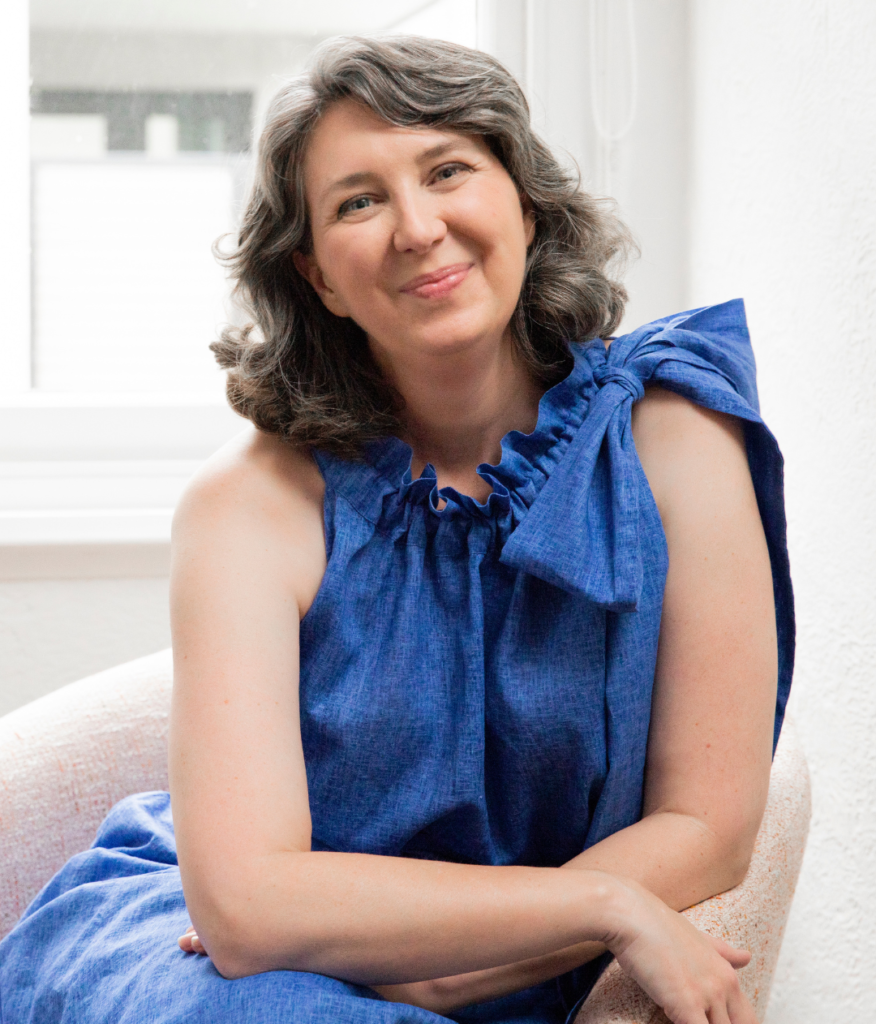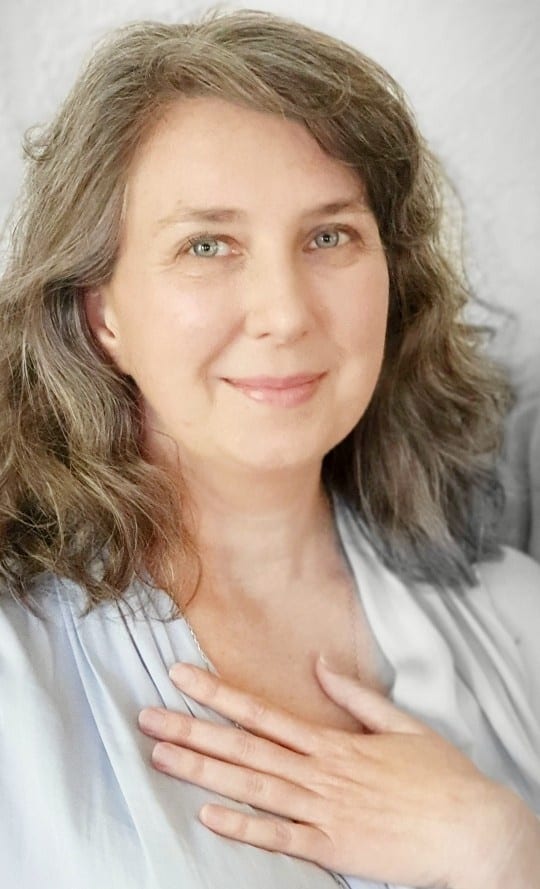At the peak of her career in her thirties, Michelle Irving faced a decision to give up her lifestyle and work to accept life-saving treatment that put her to sleep for 18 hours a day or be in organ failure within 5 years. What followed, was the unlocking of her authentic leadership and inner tools that have shaped the chronic illness and career landscape for women globally.

Michelle is a pioneer in the Chronic Illness space, founding Career and Chronic Illness International. She mentors, coaches and has created training programs for people with chronic illness to have authentic conversations about their experiences and needs, develop professional boundaries, manage their emotional, mental and physical capacities as well as progress in their career of choice. Michelle is an experienced Speaker, Facilitator, Advisor & Coach, hosts the “The Pyjama Interviews” Podcast, & regular training for DEI specialists.
Michelle spoke with WDEN and Anja on The Adaptable CEO podcast to share insights into career through the lens of chronic illness and spirituality, perspectives on the differences and similarities of disability and chronic illness, learnings from when high profile women return to work post CI, relationships, the future of the ecosystem our community is building and much more. Listen to the full podcast episode here.
Some key learnings from Michelle:
What consumes the mind, is reflected in how we live our lives and our future trajectory. Michelle, what are the three things you think about the most?
- How to reach and connect with women and deliver the best quality service and experience so that they have outcomes
- Where am I in my integrity, where am I in tune with my own wisdom and my own guidance
- What the hell is going on?! This is an adventure and it’s fun – but I’m really confused about what is going on in my life as I start to travel at this point in time.
What do you see as the difference between chronic illness and disability? Do you think that there is one?
I think there are distinctions. I never thought of my chronic illness as a disability because disability was something that you could see, and this was my absolute naivety. I was also aware that my chronic condition was incredibly disabling – not being able to walk was a big problem for me in terms of on and off treatment. I wish that I had identified as having a disability earlier.
The issue with a chronic illness is everybody expects you to get well. I was still thinking, “but off treatment I’m well so it doesn’t qualify”. But I started to become aware that the chronic condition was incredibly disabling and then very, very late in my working career in government and corporate I started to look at disability policies, not even to use them but to guide some of my language and conversation.
Now, I absolutely see myself as a member of both [communities], I definitely have an invisible disability that’s dynamic. I think the nature of a chronic condition that has both this dynamic possibility, but also this psyche of engaging with illness within our culture has its own pathway. There’s a lot of conversations that nobody wants to talk about with chronic illness or it’s something that when you’re better, life will begin. And that is a very particular psychological phenomenon to work with and to have a completely different conversation about it.
It’s about the conversation. It’s all listening. It’s all sharing together. There’s nothing more important. There’s nothing but humans conversing about their experience. That’s all it is.

Your work and type of coaching seems quite creative and spiritually driven. Why do you think that you’ve been drawn to this approach in your coaching?
It’s always been with me. I am clear that we are beings. We’re animals at one level and we have instincts. We have taught (particularly women) to override their body and to override their instincts. It takes a lot of training and a lot of pushing down to become compliant and that is exactly what we have all been trained to do.
However, compliance leads you into the model of capitalism, where you are always terrified for your survival, where you feel that your place in the world is dictated by somebody who’s more important and your value is often dictated there. When the truth is your intellect, your creativity, your physical capacity, your emotional heart, all of those capacities, including your money, and your strategy and whatever it is you share in the world. Those are your resources there for you. And you get to decide how much you give with whom and when, and then how that’s negotiated with others.
The approach for myself has always been towards understanding that I am sovereign and I live in a culture that will consistently try to tell me I’m not and to frighten me. And my job is to always come back to the ground of my sovereignty and find the right next step for myself. It’s really important when we’re living with chronic conditions that we have tremendous access to our inner world and this is where we build that strength and capacity.
What do you see is the future for people with chronic illness and disability?
I think we’re in a very open moment in culture. I’m super excited. I think the future is beautiful. And I think it’s beautiful because I think we are authentic leaders and we have skills that this world desperately needs and is hungry for at this moment. We are a huge percentage of the population that is in many ways coming online in our power. The other reason I think this is that we are an ecosystem now, we are an economical system. We are the women who hire me, I also then hire women with chronic conditions as part of my business. I’m always looking for the connection with the woman with the chronic condition or the disability in the economy.
The future is bright. We are doing it personally, We are doing it with our companies. And companies are starting to get on the page, even if it’s from how big this market is. It is no longer going to be possible to be in this future and this economy without us taking up all the appropriate positions in terms of representation, in terms of adaptability, in terms of what we are here to do in this world. And we’re here to do more in this world than live in our chronic condition. We are here to share the wisdom that we have found internally.
What advice would you give to your younger self with all you know now about life and business?
It’s going to be okay. I know it feels frightening and I know it feels scary. And those feelings are appropriate and you can learn to be with them and hold them and it is going to be 100% Okay. You’ve got what you need inside to navigate this.
You can connect with Michelle here:
Career and Chronic Illness International – https://careerandchronicillness.com/
Michelle Irving – https://www.instagram.com/michelleirvingofficial/
Listen to the full episode, and more on The Adaptable CEO – available on Apple Podcasts, Spotify and where you listen to your podcasts.
